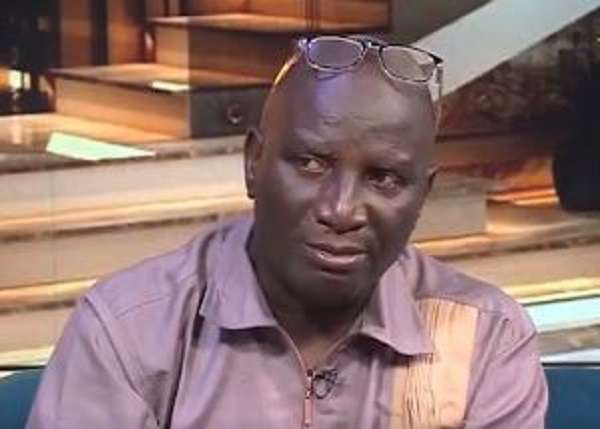In the digital age, music is more accessible than ever, with streaming platforms like Spotify, Apple Music, and YouTube dominating the landscape of music consumption.
This unprecedented accessibility has transformed how audiences experience and engage with music.
However, beneath the surface of this convenience lies a troubling reality: many musicians are struggling to make a living in an industry that increasingly prioritizes streaming numbers over fair compensation.
Film producer Socrate Safo has reignited a debate about the Ghanaian music industry’s over-reliance on streaming platforms, arguing that they have not necessarily increased the global reach or revenue of Ghanaian musicians.
All that has happened is that the owners of streaming services have brainwashed Ghanaian musicians into believing that recording huge numbers on their platforms translates into huge sums of money, which isn’t the reality.
Socrate, however, countered the perception, arguing that the notion had pushed musicians to abandon the sale of CDs, which was a gold mine to enrich them.
“The perception that streaming platforms increase musicians’ reach or make them global is a voodoo analysis. They told musicians that being on such platforms is going to bring the world to their feet. But I want to ask, ‘Do you stream Indian songs?’ There are musicians in India who also put their songs online, but how many Ghanaians stream Indian songs?
“So, where from the idea that if you put your song online, you will have a wider reach? Which wider reach? It is not true. It is the already-made market that is still serving consumers. Ghanaians don’t even stream Congolese or Togolese songs.”
Socrate Safo
He clarified that his stance was not to abandon online streaming but to tap into the residual market for physical music formats.
One of the most significant issues facing musicians in the streaming era is the meager compensation they receive for their work. According to a report from the Music Industry Research Association, artists earn an average of just $0.004 per stream on platforms like Spotify.
This means that a song would need to be streamed over 250 times to generate a mere dollar in revenue. For independent artists, who often lack the backing of major record labels, this payout structure is particularly devastating.
Many musicians rely on live performances and merchandise sales as their primary sources of income, but the pandemic and subsequent lockdowns have further exacerbated their financial struggles.
The reliance on streaming revenue has created a precarious situation where artists are forced to chase streams instead of focusing on their craft.
Streaming Rise Fuels Music Devaluation

The rise of streaming has also fostered a culture that devalues music as an art form. With an overwhelming quantity of content available at the click of a button, listeners have become accustomed to consuming music casually and without the financial investment that traditionally accompanies album purchases.
The ease of access has led to a mindset where music is seen as disposable, undermining the hard work and creativity that musicians pour into their art. This cultural shift not only affects how music is perceived but also how it is marketed and monetized.
Many artists feel pressured to produce music at an unsustainable pace, sacrificing quality for quantity in an attempt to stay relevant in an oversaturated market.
Socrate argued that the lack of CD production by musicians had led consumers to believe that the era of physical music formats was over. However, he is convinced that there is still a market for CDs, particularly among those with higher economic value who own CD players.
He also explains that while the youth might be more inclined towards streaming, there are still millions of CD players in homes, and he believes musicians are missing out on potential revenue by not producing CDs.
“It’s not about abandoning what we’re doing today and going back to CDs, but rather tapping into all available markets. Do you know that there is a CD market in the Northern Region, and the musicians there are cashing out big there. Musicians have left the sale of CDs to these pirates, and they are enriching themselves. Can you imagine a musician like Stonebwoy branding some of his boys to sell his CDs on the streets?
“A CD sells for GH ₵30, but do you know that our musicians don’t even make that amount with over 1000 streams of their songs on the online platforms? And I quote Shatta Wale on this, he said, ‘As for the streaming di333, it’s not bringing anything because in Ghana, majority of Ghanaians use Android and with Android, people don’t pay to stream music, it is only Apple that pays good money but the rest of the platforms is free’.”
Socrate Safo

Furthermore, streaming platforms often perpetuate existing inequities within the music industry. Major labels and established artists tend to dominate playlists and algorithmic recommendations, leaving independent and emerging musicians struggling to gain visibility.
The algorithms that dictate what music listeners encounter are often biased towards mainstream artists, creating a cycle where only those with significant marketing budgets or industry connections thrive.
This not only limits diversity in the music landscape but also reinforces a system where the rich get richer while the independent artists remain marginalized.
While streaming platforms have undeniably transformed the way music is consumed, they have also contributed to the financial decline of musicians.
The low payout structures, the culture of devaluation, and the perpetuation of systemic inequities combine to create an environment where many artists struggle to make a living.
As consumers, it is imperative to recognize the impact of listening habits and advocate for fairer compensation models that value the artistry and hard work of musicians.
Only by addressing these issues can a sustainable music ecosystem that supports artists and fosters creativity in the digital age. Ultimately, the future of music hinges not only on technological advancements but also on a collective commitment to valuing the artists behind the art.
READ ALSO: IMANI Blames Electoral Commission for Breakdown in Ablekuma North



















